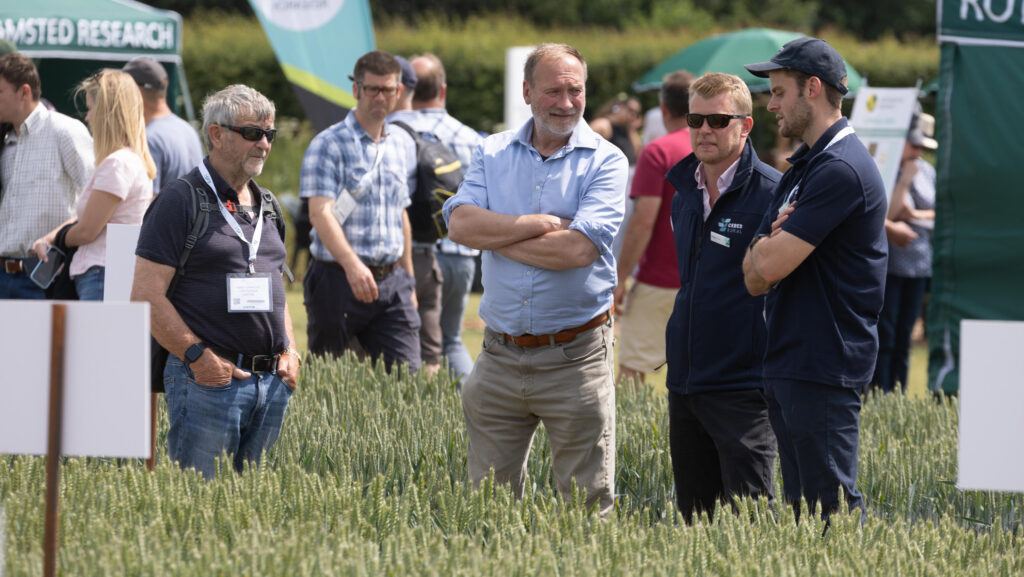Opinion: Wider industry to blame for lack of productivity gain
 © Tim Scrivener
© Tim Scrivener If you are not a farmer and you are reading this, you probably represent the problem this industry is facing.
Farmers are not valued as part of the process that can drive the industry forward. We’re seen as “input applicators”, but never the ones who can help co-develop those inputs.
See also: More farmers wanted to help in major pulse project
About the author
 Tom Allen-Stevens is managing director of Bofin – the British On-Farm Innovation Network. Here he calls for greater support and involvement for farmers in the research field.
Tom Allen-Stevens is managing director of Bofin – the British On-Farm Innovation Network. Here he calls for greater support and involvement for farmers in the research field.
Or we’re seen as “systems managers”, paying for services, but never paid to help shape them. Or you pay us to produce food, but never to improve the system that produces it.
You know that we’re sitting on vast quantities of data and that we don’t know how to manage it. Yet rather than put in solutions to enable us, you use our data for your own purposes, advise us in ways that seek to feather your own nest first.
Take your approach to R&D. Doubtless your organisation spends a fair proportion of its turnover in this area, perfecting your product or service so that we’ll spend more of our turnover on it.
But have you considered that farmers could actually innovate and improve your product or service and, if you have, do you pay us to do so?
Vanishingly few do. And that’s why this industry stagnates, why there’s no productivity growth, and why UK farmers are so heavily dependent on government support.
We are the ones who can generate productivity growth, but the rest of society doesn’t incentivise us to do so – which means we don’t get recognition for the contribution we make to farming’s progress.
Different approach
So how about a different approach?
Rather than leaving it to the government to recognise our contribution, shelling out billions of pounds to support us, why don’t you start paying for the innovative flair farmers can provide?
No one knows more than us about how to manage natural resources and turn these into societal benefits. We don’t want to milk them. We want them to thrive, and we need your support to do so.
Your encouragement twinned with our knowledge and experience can together deliver that holy grail of sustainable productivity growth, and we’ll all win.
So look again at on-farm innovation. Think about how you can support that. Is it best done through small-plot trials, with specialist operators working under non-disclosure agreements, contriving results you need for your marketing campaign?
Field scale
A better way may be field-scale trials, working openly with farmers, where you listen to us and co-develop on-farm innovations better suited to the environment and farming systems in which they’re used.
Is it best to focus your R&D effort on a lower cost per kg or litre for the commodity you seek? A better way may be to commit to properly supporting and championing farmers who are pioneering novel farming systems that improve animal welfare and resource management.
We’ll work harder and more productively if we feel we’ll get a fair share of the value that accrues.
What’s more, the support structure exists to turn the innovative flair required into on-farm productivity gains.
For example, the British On-Farm Innovation Network is currently supporting 73 farmers involved in Defra-funded projects with this aim.
That latent talent lies not in every farmer. But with the right support, those who have the pioneering spirit can help shape the experience for others who follow.
It just needs people in this great industry to light the touch paper, unleash and reward that talent. Could that be your role?
